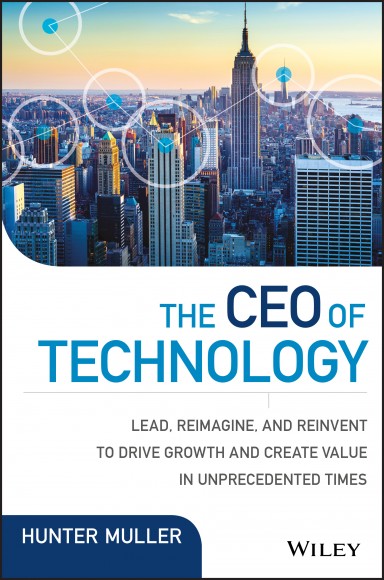Are You Ready for 2030? Modern CIOs Lead, Reimagine, Reinvent, and Enable a Culture of Genius to Create Value and Drive Growth

The CIO role has evolved dramatically over the past two decades. The 21st-century CIO is a value-creator and driver of strategy. The contemporary CIO has a seat at the C-suite table and serves as a trusted advisor to the organization’s executive boards.
Today’s CIOs are key players, indispensable counselors, and prime movers in the modern enterprise. This is partly a result of the CIO’s unique view across the enterprise. The CIO is often the only C-level executive with a clear line of sight across the various units and areas of the business. The CIO understands at a fundamental level how technology and processes can be used to drive efficiency and growth.
The best CIOs lead, reimagine, reinvent, and enable a culture of genius to create value and drive growth. Let’s unpack those four essential concepts:
- Lead: The modern CIO is a leader, an experienced executive with the people skills needed to inspire teamwork, individual initiative, superior execution, and loyalty.
- Reimagine: Forward-looking CIOs don’t accept the status quo. They don’t seek the easiest path. They are trailblazers, pioneers, and groundbreakers, and they are expected by the CEO to identify and execute on opportunities to transform the business. They reimagine the future and find the right combinations of people, processes, and technology to convert their vision into reality.
- Reinvent:The modern CIO continually modifies, improves, and reinvents existing processes, technologies, and systems to achieve the strategic goals of their organization.
- Create a Culture of Genius:The CIO nurtures and supports the people around them, pushing them to achieve success beyond their wildest dreams. They encourage imaginative work and reward innovation.
The CIOs I know and admire don’t have superpowers or supernatural talent. They are, however, great leaders. On a very basic level, they understand the long and amazing relationship between human beings and technology. We shape our tools, and then our tools shape us. This relationship began long ago, and it has been absolutely central to our survival as a species.
Roughly two million years ago, our Stone Age ancestors discovered how to control fire. Ever since, progress and innovation have defined human culture. We invented the crossbow, printing press, steam engine, electricity, internal combustion engine, air travel, atomic power, digital information technology, and space travel. Each invention rocked our world and moved us further into an unknown future. Despite our uncertainty, we keep moving forward.

Today, the pace of innovation is accelerating at a rate that would have been simply unimaginable 10 years ago. By 2030, the world will be a completely different place than the world our parents knew.
Artificial intelligence/machine learning, bioengineering, ubiquitous computing, advanced manufacturing, driverless cars, drones, nanobots, robotic process automation, blockchain, and fintech will fundamentally and profoundly transform every aspect of our lives.
So here’s my question: Are you ready for 2030? Are you making the right investments and focusing on the right strategies for a world that does not resemble anything we could have imagined in the past? Are you preparing for a future of unprecedented change and transformation at every level of society and across all industries? Are you acquiring and developing the skill sets needed for your company to successfully pivot in the digital economy?
We live in unprecedented times. Markets are chaotic. Consumer demand is unpredictable. Product cycles have tightened drastically. Regulations, rules, and guidelines are changing rapidly. Everywhere you look, there is turbulence and upheaval. With amazing force and astonishing speed, the paradigm has shifted.
As leaders, we face continuous disruption and extremely rapid transformation. The C-suite and board of directors look to the CIO for expert guidance and flawless execution.
Ask yourself: Are you ready for your next meeting with the C-suite? Are you ready for your next meeting with the board of directors?
Do you have the passion, commitment, energy, and motivation to lead your organization through truly perilous times?
Are you genuinely interested in people? Do you understand what people need to do their best work? Are you willing to help the people around you succeed and thrive? Are you generous, collaborative, and cooperative? Do you have the stamina and skills required to lead high-performance teams?
Never before have the stakes been so high. The risks are clear: Make the wrong decision and your company will fall behind, suffering potentially irreparable damage to its brand and reputation.
The modern CIO is so much more than a cheerleader for new technology. They are a bold leader, a doer, a champion, and a rainmaker. The 21st-century CIO leads, reimagines, reinvents, and enables a culture of genius. In today’s world, that’s the new normal.
Hunter Muller is the president and CEO of HMG Strategy, LLC, and the author of five books published by John Wiley, includingThe Transformational CIOandThe CEO of Technology , from which portions of this article were adapted.

